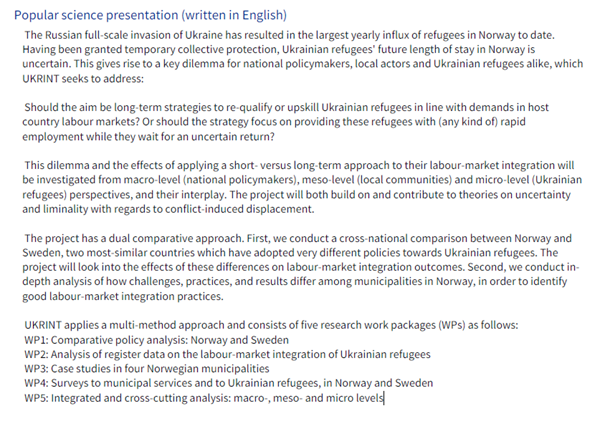Knowledge 4 Change (Uganda/Zanzibar)
BACKGROUND
Knowledge for Change (K4C) is a registered charity and NGO in the UK, Uganda, . For over 10 years, we have run international development and global health research projects aiming to improve health and education systems in Uganda.
We have previously hosted 9 OsloMet MA students in Uganda and now 3 in Zanzibar, and all of their research has supported the evaluation of our active projects and informed our strategy for future interventions. Some of their research areas have included: the application of inclusive education policies for children with disabilities; empowering parents of children with disabilities; provision of respectful care for women during childbirth; the lives, experiences and challenges of orphans; corporal punishment in parenting; the role of labour pain in Ugandan culture; and challenges of living with limb loss in Uganda.
PREVIOUS RESEARCH PRIORITIES (UGANDA)
1) Examining the roles of visitors/‘attendants’ for hospital patients in Uganda
Levels of hospital acquired infections (including Covid-19) are very high in Uganda which increases numbers of illnesses and deaths. We expect one of the main causes to be the high numbers of visitors that each patient receives; most have between 1 and 5 ‘attendants’ who stay with them whilst they are in hospital and perform tasks such as bathing them, preparing food, collecting medicines and providing emotional support.
We want to know more about who these attendants are and what roles they play for patients. This will enable us to design effective interventions to ‘manage’ their behaviour and thereby reduce rates of hospital acquired infections.
2) Improving access to HPV vaccination for 12-year-old girls living in ‘hard to reach’ communities in Uganda.
Cervical cancer is the most common cause of cancer related deaths for women in Uganda. The main cause of cervical cancer is the Human Papillomavirus (HPV) which is a sexually transmitted virus. Vaccines have been developed to prevent women contracting HPV and the Ugandan government has recently launched a free vaccination programme for 12-year-old girls.
Currently, this programme targets girls via schools, however data suggests that many girls from ‘hard to reach’ communities are being completely missed or are not receiving their 2nd dose of vaccine. This group includes girls who do not regularly attend school, or whose parents are not educated and may not see the benefit of their child being vaccinated and therefore not give permission (due to common misinformation and fake news).
Researching this topic will help us design interventions to improve girls’ access to HPV vaccinations and thereby reduce cases of cervical cancer amongst these vulnerable populations.
3) Assessing the needs and priorities for preventative men’s health interventions in Uganda.
The vast majority of K4C (and other NGOs) activities focus on improving women and children’s health and education, in line with the UN’s Sustainable Development Goals and priority groups. However, we are concerned about the non-positive (possibly detrimental) impact that this has on men’s health in low-and middle-income countries.
We are interested in assessing the health needs and priorities of neglected vulnerable male populations in order to improve health outcomes for these groups. Some neglected areas of health that we have initially identified are testicular and prostate cancers. Further research will support our planning of future interventions.
4) Assessing the impact of the Covid-19 pandemic on children’s education
Across the world, children’s education has suffered as a result of the Covid-19 pandemic. In Uganda, levels of pupil attendance have hit record lows, impacted directly by government restrictions and parent’s fears of virus transmission, but also indirectly as a result of reduced parental incomes and their ability to afford transport and/or essential scholastic materials. Prior to the pandemic, K4C had made strong progress in increasing school attendance for children with disabilities at Canon Apollo Primary School, however we are worried this may be reversed as a result of the Covid-19 pandemic.
Research into this area will support 2 key areas of activity. Firstly, it will help to highlight priority areas of the curricula for teachers to focus on once schools return. Secondly, it will inform K4C interventions and initiatives to maximise school attendance, particularly for those children with physical and mental disabilities.
SUPERVISION
All OsloMet MA students are co-supervised by Professor Louise Ackers (University of Salford, UK) and receive pastoral and academic support from K4C’s experienced research, project management and clinical staff in Uganda. After their period of fieldwork, students have the option of travelling back to Norway via the UK, where they may be asked to present their research to staff and stakeholders at K4C and Salford University.
COSTS AND FUNDING – 2022 estimate
Students are responsible for making their own flight, travel and subsistence arrangements in both Uganda (and the UK if applicable), ensuring they are covered by an appropriate insurance policy for the duration of their placement. K4C will assist students wherever possible in making these arrangements and will provide free airport transfers in Uganda.
K4C accommodation is provided at GBP200 (NOK2.340). There is an additional tuition fee of GBP1,225 (NOK14.280) to cover a 3-month fieldwork period in Uganda. Eligible students can apply to for Lånekassen support to cover these costs.
VOLUNTEER WORK
K4C facilitates students who want to undertake voluntary work during their fieldwork period in Uganda. This can be beneficial for local communities and also supports ethnographic research and gaining a rich understanding of culture and context. We have close links with various partners working in each of the research fields including schools, health facilities and community based organisations.
Contact person
For questions and application, please contact James Ackers-Johnson – email: j.ackers@salford.ac.uk
